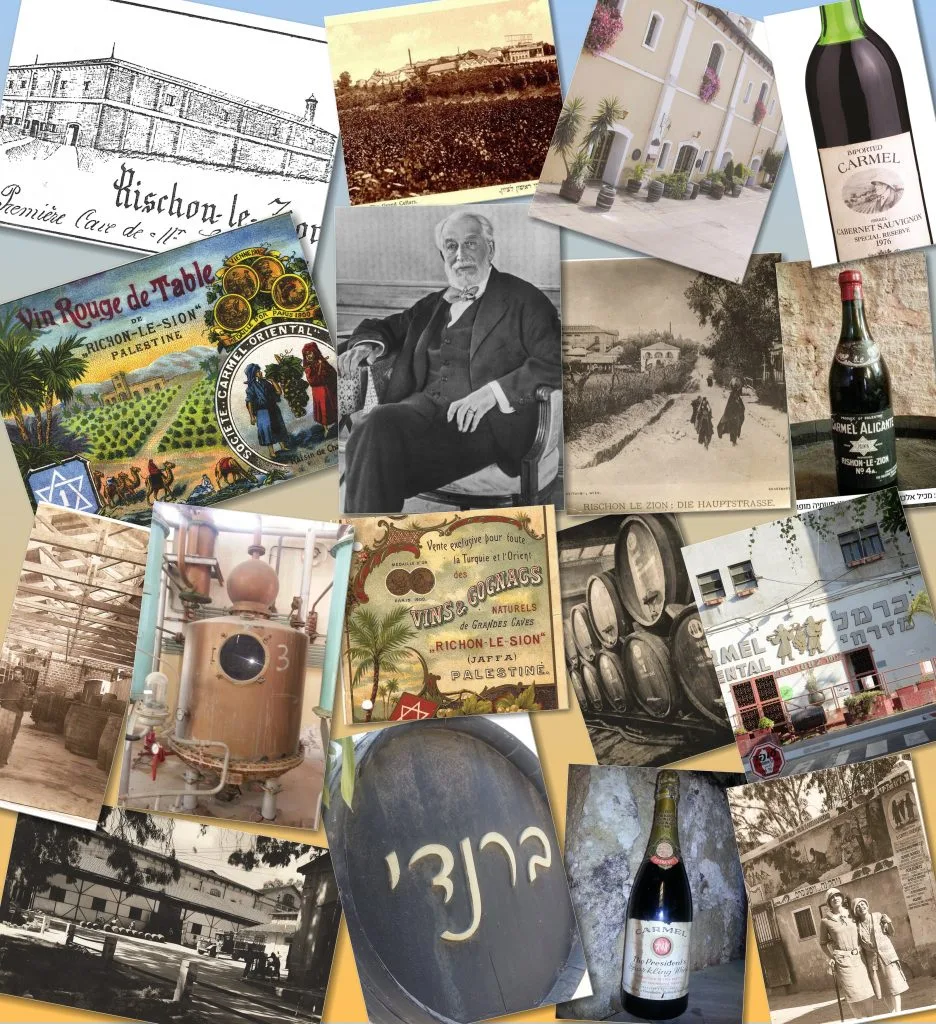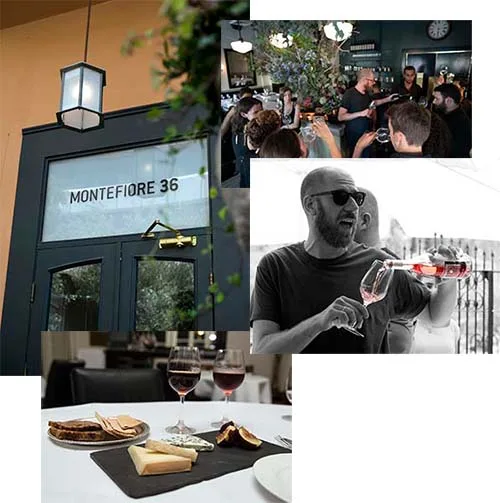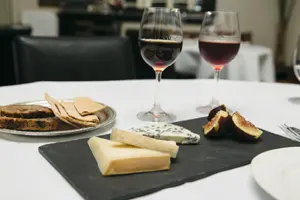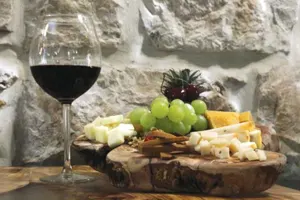Farewell to Rishon Le Zion Wine Cellars. The final death throes have taken place and the historic winery of Israel is finally closed. It has been a long time coming. The last harvest was received there back in 2010, but offices, warehouses and the bottling plant remained. Last year the bottling plant moved to Alon Tabor and in February 2017, exactly four years after the new owners purchased Carmel Winery, the remaining employees packed their belongings and evacuated the premises for the final time.
It has been a ghost like property for some years, run down and dirty, but the place even in a state of disrepair still reeked of history. Indeed it was the largest winery in Israel for no less 120 years. In a wine industry where nearly all the wineries have been founded in the last 30 years, this represented a valuable jewel of Israeli wine representing history, heritage and culture. Whilst I don’t deny that progress is not always respectful of the past, it is also true that a part of the soul of Carmel Winery has flickered and gone out.
The story of the winery was the Zionist dream come true. It operated in three different centuries, the 19th, 20th and 21st, under the Turks, the British and the State of Israel. It represented both the story of Israel and the story of Israeli wine.
The first modern experimental vineyards were planted in Rishon Le Zion in 1882. This was the year that Baron Edmond de Rothschild sent an agronomist to survey the land and decided to build the water tower that can still be seen in the park across from the winery. After visiting, he decided to build wineries and plant vineyards and create an Israel wine industry.
When the foundations of the new winery were set in 1889, the Sultan was concerned about the amount of building materials entering the site. (Remember this was the Ottoman Empire.) He demanded building stop immediately. He feared the Jews were building a fortress. Some diplomatic smooth talking and a gift in the right direction allowed the building to continue.
The accounts books of the period are written in French (this was before Hebrew became the accepted language.) In it there is an entry entitled baksheesh, with a list of the bribes given. In those days they were recorded.
During the first vintage in August 1890, all the wine turned to vinegar. The French agronomists did not appreciate how hot it is in August. So the second year they imported an ice machine from Egypt, and put blocks of ice in the large fermenting barrels to bring down the temperature. The next year they made do with spiral pipes which they put inside barrels and pumped cold water through them. Both of these measures were only moderately successful.
So in 1893, Rothschild realized he had no alternative but to build the deep underground cellars to keep the temperatures cooler. He built six cellars at Rishon, each fifty meters long and the task was finished in 1896. The cost of building Rishon Cellars was 6 million francs. This was more than it cost the Rothschild family to buy Château Lafite, the famous Bordeaux winery.
However, Rishon Le Zion Wine Cellars was a state of the art winery and very large even in world terms. The winemaker was from Bordeaux, the cuttings from Château Lafite and the viticulturists were France’s finest. The first ever telephone used in Israel was at Rishon. It enabled the manager of the winery to speak with his cellar workers. Also the first time electricity was ever used was at the winery.
David Ben Gurion, Israel’s first prime minister, worked at Rishon Le Zion Cellars in 1907. It is said he led the first strike there and he may have even been fired in the end. Even then as a young man he was very competitive. He bet his fellow workers that he could tread the grapes longer than they could. He did it for three consecutive days and won his bet, but the smell of fermenting wine made him feel so nauseous, he was not able to enjoy wine for years afterwards.
The name of Rishon Le Zion, or ‘Richon’ spelt the French way, Carmel and Palwin were the first brands of the company. However in the early days, Rishon would appear more prominently on the label than the other two.
Levi Eshkol, Israel’s third prime minister, managed the vineyards surrounding the cellars in 1915. Early photos show vineyards, not houses, up to the walls of the winery. It was like a true French Château! Unfortunately, money was more important than aesthetics and real estate was more profitable than vineyards. The vineyards were grubbed up and houses replaced them. It was the close proximity of the residential area which was one of the pressures that caused the winery to close. However the last vineyard did not leave Rishon until well into the 1970’s.
In 1934 Israel’s first brewery was opened adjacent to the winery. It was called Palestine Beer Breweries. Its first brand was Nesher (Eagle) which still exists. Israel’s best selling beer Goldstar was first made at Rishon in 1950.
There was a wall between the brewery and winery and workers used to barter before Shabbat “give me a bottle of bottle of wine and I will give a couple of beers.” Folklore says the winemaker and brew master used to meet after work, and drink until the early hours!
Of course, the only people drinking beer then, were the British. When they left, beer sales plummeted and the brewery closed in 1960. All that is left is the eagle embossed in the stone step at the entrance to what was the Brewery offices, and then became Carmel’s Accounts Department.
Only in 1957 did James Rothschild, the son of Baron Edmond, donate Rishon Cellars to Carmel SCV, the parent company. Thus the Rothschild involvement with Rishon lasted from 1882 to 1957. James Rothschild also donated the money to build the Knesset and started a foundation called Yad Hanadiv, which still supports Israel.
The winery always ordered some limousin oak barrels for maturing its brandy, which was far more popular in those days. Wine was then traditionally aged in large old oak barrels. However in 1976, the winemaker, Freddie Stiller, decided to take some of the small oak barrels from his brandy program and age his wine it. The result was the legendary Carmel Special Reserve Cabernet Sauvignon 1976. It was the first Israeli wine aged in small oak barrels and Israel’s first wine of international quality. It was a remarkable wine that lived for twenty years and was a forerunner of the quality revolution to follow.
As mentioned, Rishon was always very associated with brandy. It had four beautiful old copper pot stills provided with German reparation money after the founding of the state. It was housed in the spirit tower, where a continuous still was also situated. The Extra Fine Brandy was one of the first brands of the winery, when they began to distill excess grapes in 1898. The famous 777 brandy was originally branded as Rishon 777.
In 1998 the Carmel 100 Brandy won the outstanding award of Best Brandy Worldwide in the prestigious International Wine and Spirits Competition in London. This was a brandy that was aged in oak barrels in the legendary brandy cellar, with its original wooden slatted roof that in places allowed the rain to leak through. Here the aromas of the angel’s share (brandy lost to evaporation) will be remembered by all who entered this paradise.
Back in 1887 Baron Rothschild demanded that the farming villages plant Bordeaux varieties because he wanted to make a really fine wine. Most of his agronomists were against it, but the Baron’s wish prevailed. The grape varieties were planted, but the experiment ultimately failed, because of complaints by the growers, vineyard disease and there was no demand for expensive wine.
However in 2006 Carmel launched its first Carmel Limited Edition. The historic Rishon winery building is illustrated on the label. This was a prestige wine blended at Rishon which was made from the five main Bordeaux grape varieties. It took over 100 years, but the launch of this wine, which received a score of 91 points from Robert Parker’s Wine Advocate, meant that Baron Edmond de Rothschild’s vision for a Bordeaux style wine finally came true.
The last regular harvest was in 2010 and by 2011, the Zichron Ya’acov Cellars was equipped to receive the grapes that previously arrived at Rishon. In 2013 Carmel Winery was bought by a consortium of international and Israeli investors, headed by Kedma Capital. The new owners decided to close Rishon Cellars finally and to build a new bottling plant at Alon Tabor in the Jezreel Valley.
I have two sad thoughts. Firstly can you imagine the Mayor of Amsterdam allowing Heineken to leave the city One would have hoped the city mindful of culture and history, would have done whatever it took to keep this treasure within the city boundaries. Let us hope and pray that the future developments will include something more tasteful and less commercial than the restoration of Sarona.
Secondly, it was not me that said: “A company that does not respect its past, has no future.” However having worked for Carmel for sixteen years and been part of the management for much of this time, I know better than almost anyone else the wealth of historical information that was there. Rare old equipment, unique old bottles, priceless documents, hand written hundred year old account books etc. It is a real tragedy if everything has not been carefully collected, packed up and preserved for future generations. I am sure efforts have been made, but I fear not commen surate with the long history and value of the material. Fortunately the Rishon Le Zion Museum has done a better job than the winery of preserving some form of archive.
At least the old winery buildings and cellars will be preserved. Hopefully the memories and stories, and the Carmel folklore, will keep the cellars alive.





